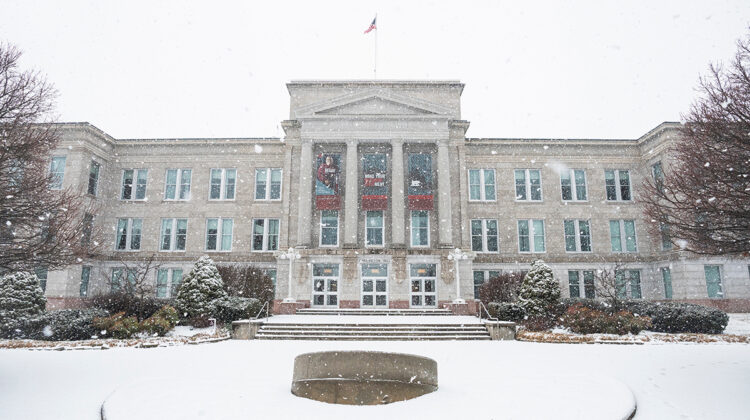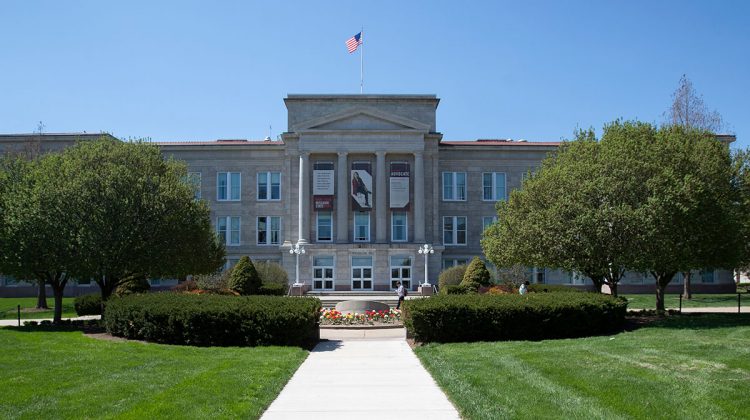Earlier this month the Board of Governors Executive Committee met.
The committee awarded the contract to construct the Springfield Public Schools Agricultural Magnet School at Darr Agricultural Center to Larry Snyder & Company. This is a $6.7 million project funded entirely by private donations.
The committee also approved $800,000 in purchases to upgrade the efactory and JVIC to meet public health emergency guidelines. These purchases are funded entirely with CARES Act funds allocated by Greene County and the Missouri Department of Economic Development.
I also updated the board on the status of COVID-19 on our campus and our plans to finish this semester and start the spring semester without making changes to our academic calendar.
Cost-saving measures
I updated the board on the FY2021 budget.
The budget currently includes several cost-saving measures, including:
- A 75% reduction in funding for facility repairs and classroom upgrades.
- A 25% reduction in the President’s enhancement fund.
- A 75% reduction in funding for academic equipment.
- A 50% reduction in travel budgets.
These cuts are in addition to savings generated by the hiring freeze, eliminating the incentive payments for teaching online classes and delaying the completion of the new residence hall. Even with these reductions in place, we still planned to use $4 million of reserves to balance the FY2021 budget.
Thanks to all of your hard work, fall enrollment exceeded projections. Accordingly, it does not appear that we will need to use $4 million in reserves to balance the budget.
Additionally, Gov. Mike Parson released more than $1.5 million in state appropriations for the Springfield campus and more than $100,000 for the West Plains campus. Our leadership team worked with the Executive Budget Committee and the Board of Governors to develop a plan to revise the FY2021 budget and allocate these funds.
Pay increase
This plan includes a $600 per year across-the-board pay increase for full-time faculty and staff hired on or before Nov. 30, 2020. The increase will begin in January for 12-month employees and in February for 9- and 10-month employees.
The increase will be spread throughout the year the same way a percentage increase would be spread. For example, an employee in a 12-month exempt position paid once each month will receive an extra $50 (before taxes and withholdings) per month beginning with their paycheck at the end of January 2021.
The university typically implements across-the-board pay increases as a percentage of each employee’s salary. If we were to do that in this situation, we would have provided a 1% raise.
We decided to structure this increase differently because the financial impact of the pandemic and of forgoing raises in July disproportionately affected our lowest paid employees. Our lowest paid employees also benefit more from a $600 raise than a 1% raise.
Moreover, almost all of our employees who were placed on 2/3 pay during the spring and summer will benefit more from a $600 raise. We believe it is important to recognize their loyalty in returning to work after their temporary pay reductions.
The plan also funds adjustments to our salary ranges to match the calendar year 2019 employment cost index.
The remaining $700,000 will be allocated to temporarily restore a portion of the reduced funding for facility repairs and classroom upgrades. Because the $600 raise is being implemented in the middle of this fiscal year, only half of the annual cost of the raise must be allocated in the FY2021 budget.
Accordingly, we have tentatively tagged the $700,000 used to partially restore funding for facility repairs and classroom upgrades as available to fund most of the remaining cost of the $600 raise in the FY2022 budget.
We will present this plan to the board for approval at their December meeting.
Thanks for all you do for Missouri State!





